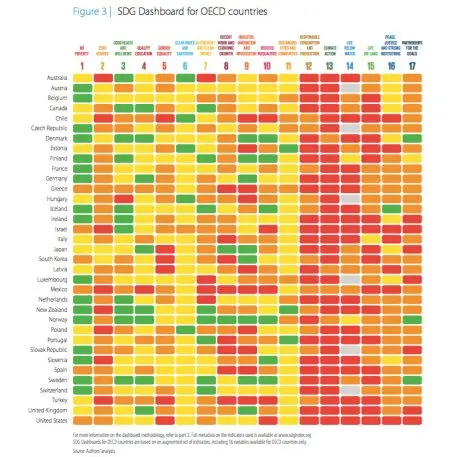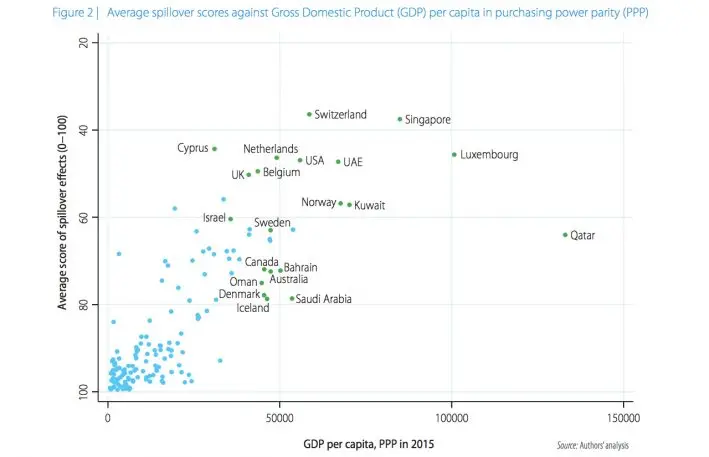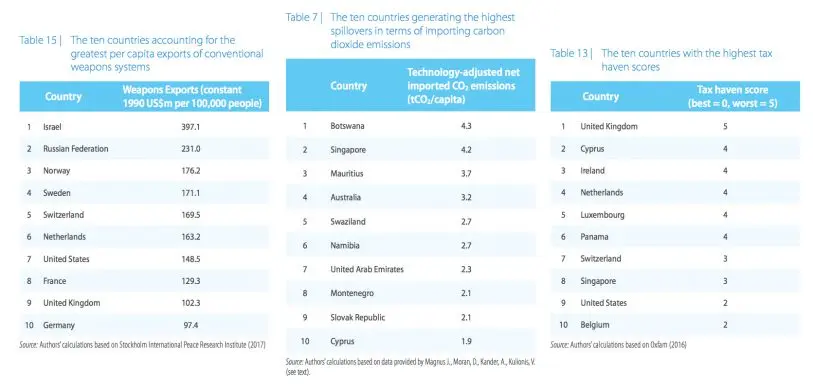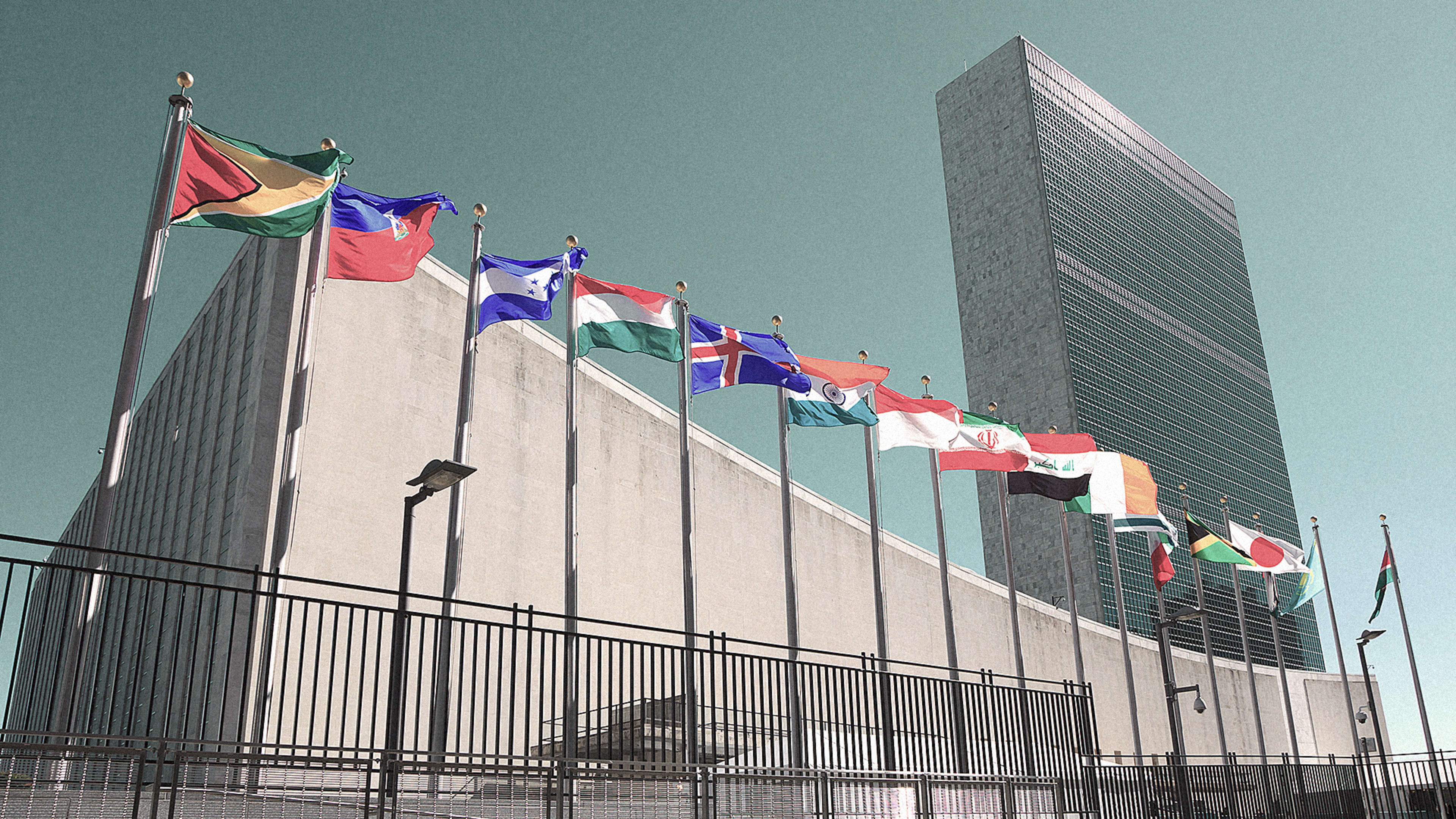When United Nations member states agreed on the Sustainable Development Goals (SDGs) two years ago, they were setting down a consensus view on the future of nations. The SDGs represent humanity’s best aspirations for national improvement, from curbing hunger and disease to reducing inequality and responding to climate change. And, in their completeness and breadth, the SDGs suggest that countries find a more harmonious balance between industry and economy on one side of the ledger, and environment and social factors on the other.
By that difficult-to-reach yardstick, nowhere is perfect (including the U.S.). Even the Nordic countries (Sweden, Norway, Denmark)–so often at the top of quality-of-life ranking exercises–fall down in some areas of the SDGs, according to a new report. By traditional development measures–including poverty and life expectancy–they do very well. But, judged by their impacts on the environment and other countries, their negatives are significant as well: These societies consume high amounts of resources and produce high amounts of harmful waste, like electronic by-products.

The report, now in its second year (we wrote about the first report here), ranks countries by their progress on the goals. It comes from the United Nations’s Sustainable Development Solutions Network (SDSN), which supports the implementation of the goals, and Bertelsmann Stiftung, a German foundation. Jeffrey Sachs, a renowned development economist, oversaw the research. Sachs is one of several academics looking to expand understanding of national performance beyond GDP and other economic measures to include data on well-being, lifestyle, and social services.
This year, SDSN added a new element to its scoring. As well as ranking 157 countries on their within-borders performance (e.g., on education, infrastructure, and clean water standards), it also measures what it calls “spillover effects,” which make up 9 of the 99 indicators, or 10% of the overall score. That includes a country’s pollution, financial secrecy, and weapons sales–all of which affect the world at large–and aren’t necessarily captured by national statistics.

The SDG and spillover lenses puts the U.S. in a particularly lowly spot: 42nd place. Among the world’s most prosperous countries, only Chile, Israel, Mexico, and Turkey are behind us in the rankings. On a dashboard of the 17 SDGs, we have eight red marks (representing significant “challenges”), along with the likes of India, Mexico, and Turkey.
“The U.S. does well on the economy, of course,” Guido Schmidt-Traub, SDSN’s executive director, tells Fast Company, “but it faces major social challenges, with high inequality, high racial violence, gun violence, and a higher prison population. It also has significant spillover effects on the environment.”
The U.S. scores badly for gender and income inequality (SDGs 5 and 10), unsustainable consumption and production (SDG12), taking climate and environment action (SDGs 13 to 15), ensuring peace and security at home and abroad (SDG16), and in supporting the SDGs themselves (SDG17).

“Development in the U.S. has been imbalanced,” Schmidt-Traub says. “It’s been heavily focused on the economy, but it’s lagging in the social and environmental dimensions. The U.S., based on this data, is not a good model for other countries, although many countries are looking to the U.S. as a model.”
Interestingly, high-income countries, with good overall scores, often do worst on the “spillover effects”–where the actions of one country negatively impact others. “The bottom 20 performers on spillover effects are rich countries, which generally do better than poor countries in the overall ranking,” according to the report. “This suggests that good SDG outcomes are often associated with negative spillover effects.”
For example, Switzerland, ranked eighth overall, scores well for traditional development measures like life expectancy and poverty. But it’s marked down for financial secrecy (it has the world’s worst ranking) and for its consumption-waste patterns. Switzerland has little of its own manufacturing (and associated pollution), but it imports a lot of goods that embody CO2 and nitrogen dioxide.
SDSN wants to incorporate more spillover data in next year’s analysis, potentially adding indicators on financial flows and trade relations, fishery health, and clean water availability–big development issues that also aren’t necessarily captured by national statistics. Schmidt-Traub points to the Panama Papers as an example of how financial secrecy “can have significant adverse impact.” The 11.5 million leaked documents offered a glimpse of offshore wheeling and dealing among the powerful and famous, with dozens of national leaders avoiding taxes, or hiding corrupt money. “These are massive issues and important to developing countries,” he says.
Recognize your brand’s excellence by applying to this year’s Brands That Matter Awards before the early-rate deadline, May 3.
